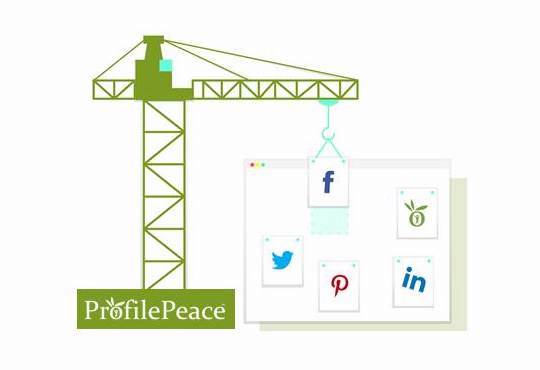|
Facebook is the world’s largest social network with more than 2.5 billion monthly active users. As it relates to Facebook profiles, Mark Zuckerberg, co-founder of Facebook, famously said in a 2009 interview with Wired magazine: “Think about what people are doing on Facebook today. They're keeping up with their friends and family, but they're also building an image and identity for themselves, which in a sense is their brand.”
At the highest level, a brand can be defined as a particular identity or image regarded as an asset. These social media identities or brands are increasingly valuable and personal assets that may not be addressed in funeral planning. After a loved one passes away, a modern and frequently asked question is what happens to social media profiles after death? There are 2 ways social media profiles can be handled.
This blog post will address the first approach, which is a best practice, of properly reporting a decedent’s social media profiles to the social networks results in closing a profile and definitively restricts any further use, or memorializing a profile which is an option only for Facebook or Instagram profiles. Closing a profile deletes the account and personal information from the social network, which is a secure and straight forward solution. Memorializing a profile prevents anyone from logging into the account to protect against unauthorized use, and the profile stays online as a place for family, friends and others to gather. Again, this memorialization option is only available on Facebook and Instagram, which are owned by the same company. At this time, all other social networks simply offer one option to close and delete the profile. Memorializing a Facebook profile is an increasingly popular solution after a user passes away. Similar to learning about a death directly from a person, the indirect communication through a memorialized Facebook profile can prompt family, friends, colleagues and others to reach out and offer support and help with the funeral and bereavement process. After a funeral occurs, a memorialized profile can offer a place to find ongoing solace and emotional support. A memorialized Facebook profile shows the word “Remembering” next to the decedent’s name. In turn, when family, friends, colleagues and others visit the profile of the decedent, it clearly communicates they have passed away. Additionally, a limited option prior to a user passing away, is the ability to appoint what is known as a Legacy contact, which is someone the decedent chose prior to death to look after their memorialized account. Legacy contacts have the option to write a post for the profile such as a final message or provide information about a memorial service, update profile pictures, and request the removal of a decedent’s account. However, a Legacy contact cannot log into the account, read messages, remove friends, or make new friend requests. Essentially, a Legacy contact has very limited access to the decedent’s profile as an extension of their own Facebook profile and account capabilities or functionality. We will address the pros and cons of appointing a Legacy contact when we discuss pre-need planning approaches next. It is important to know that memorialization is an option on Facebook since it can be a helpful aspect of social media in the context of funeral service. To summarize the first approach of closing or memorializing a social media profile at the time of death, this is the preferred, prudent and most practical method to mitigate the emotional impact social media can have on family, friends, colleagues and others in the community. To learn more, we invite you to attend our Continuing Education (CE) webinar titled titled “Social Media & Funeral Planning”, which provides information on social media in the context of social science and funeral planning. During this 1 hour informational session, we offer practical guidance licensees can share with families to address concerns about a decedent’s social media profiles. Upon completion of this program, the licensee will gain a clear understanding of the concerns family members have about a decedent’s social media profiles, and become familiar with the solutions and services available to address those concerns as part of modern-day funeral planning. Click here to register >
0 Comments
Your comment will be posted after it is approved.
Leave a Reply. |
Archives
July 2024
Categories |



 RSS Feed
RSS Feed